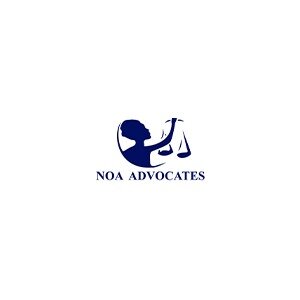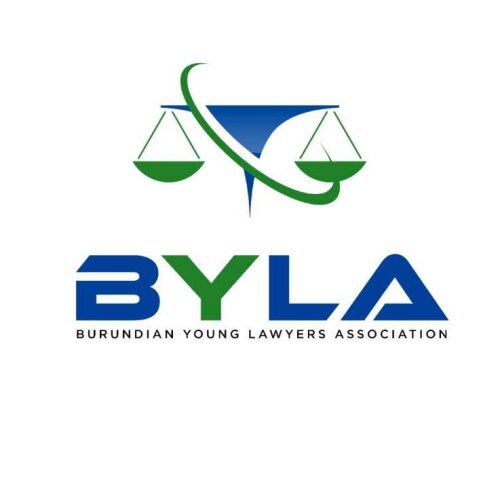Best Restructuring & Insolvency Lawyers in Burundi
Share your needs with us, get contacted by law firms.
Free. Takes 2 min.
Or refine your search by selecting a city:
List of the best lawyers in Burundi
About Restructuring & Insolvency Law in Burundi
Restructuring and insolvency law in Burundi governs how financially distressed businesses and individuals manage their debts and assets. This area of law provides legal frameworks for reorganizing businesses, negotiating with creditors, and, when necessary, liquidating assets to satisfy outstanding obligations. The primary goal is to ensure a fair and orderly process for managing financial distress while protecting the interests of both debtors and creditors. Burundi's legal system incorporates both preventive measures for businesses facing potential insolvency and procedures for formal insolvency proceedings when debts can no longer be managed privately.
Why You May Need a Lawyer
Legal assistance is crucial in restructuring and insolvency matters for several reasons. Common situations where people may require a lawyer's help include:
- Advising on options to avoid insolvency, such as debt restructuring or negotiations with creditors.
- Guiding business owners through formal insolvency proceedings and court processes.
- Representing creditors seeking to recover debts from insolvent businesses or individuals.
- Preparing and filing the required court documents for either voluntary or involuntary insolvency actions.
- Protecting personal and business assets during financial distress.
- Navigating employment matters and contractual obligations affected by insolvency.
- Ensuring compliance with local bankruptcy and restructuring laws to avoid further legal or financial penalties.
Given the complexity and strict timeframes often involved, consulting an experienced restructuring and insolvency lawyer can help individuals and businesses make informed decisions and safeguard their interests.
Local Laws Overview
The legal framework for restructuring and insolvency in Burundi is primarily governed by national commercial law, the Civil Procedure Code, and specific bankruptcy-related regulations. Key aspects to be aware of include:
- Preventive Proceedings: Burundi allows businesses in financial difficulty to initiate preventive court-approved restructuring plans before full insolvency is reached.
- Insolvency Proceedings: Formal insolvency proceedings begin when a business or individual is unable to pay debts as they fall due. This can be initiated by the debtor or creditors.
- Court Supervision: All insolvency and restructuring processes are subject to court supervision with appointed administrators overseeing the procedure.
- Protection of Creditors: The law establishes mechanisms for the verification and classification of creditor claims and prioritizes certain debts in the event of liquidation.
- Asset Liquidation: Once insolvency is declared, non-exempt assets may be liquidated to repay creditors in accordance with statutory priority rules.
- Business Continuity: Certain provisions allow for continued business operations during restructuring, provided that it serves the interests of creditors.
- Criminal and Civil Liability: Debtors and company directors may face sanctions for fraudulent conduct, asset concealment, or failures to observe legal requirements during insolvency proceedings.
Burundi is also a member of the Organization for the Harmonization of Business Law in Africa (OHADA), which sets regional standards for business and insolvency law, directly influencing the local legislative framework.
Frequently Asked Questions
What is the difference between restructuring and insolvency in Burundi?
Restructuring refers to measures taken by financially distressed businesses or individuals to reorganize debts and operations to avoid insolvency. Insolvency occurs when a debtor is unable to meet its financial obligations, triggering formal legal proceedings.
Who can file for insolvency in Burundi?
Both individuals and companies can file for insolvency. Proceedings can be initiated voluntarily by the debtor or involuntarily by creditors when debts remain unpaid.
What steps should a company take if facing serious financial difficulties?
Companies should first seek professional legal and financial advice. Early negotiations with creditors, creating a restructuring plan, and considering preventive court proceedings are common first steps before formal insolvency.
Are all creditors treated equally in Burundi's insolvency proceedings?
No, certain claims have priority over others, such as employee wages and tax obligations. The court will classify and prioritize creditor claims during the insolvency process.
Can directors or managers be personally liable for company debts?
Generally, company debts are separate from personal assets. However, if directors are found to have acted fraudulently or in violation of laws, they may bear personal, civil, or criminal liability.
What happens to employees during company insolvency?
Employee rights are protected by law. Wages and related claims are given high priority during asset distribution. In some cases, jobs may be preserved if the business continues to operate under restructuring.
How long do insolvency proceedings usually take in Burundi?
The duration depends on the complexity of the case, number of creditors, and speed of court processes. Simple liquidations can be finalized within months, while larger cases may take longer.
Can an insolvent business continue operating?
Yes, a business may continue operating under court supervision if it is in the interests of creditors and forms part of a formal restructuring plan.
Are foreign creditors allowed to participate in insolvency proceedings?
Yes, foreign creditors may participate and file claims, but must comply with local legal procedures and provide required documentation as specified by the court.
What is the role of an insolvency administrator?
An insolvency administrator is appointed by the court to oversee the procedure, manage the debtor's assets and affairs, verify claims, and ensure equitable distribution to creditors.
Additional Resources
For those seeking further information or assistance, the following resources can be valuable:
- Burundi Ministry of Justice: Responsible for commercial court administration and insolvency proceedings.
- Commercial Courts (Tribunal de Commerce): Handle restructuring and insolvency cases; provide case information and forms.
- Bar Association of Burundi (Ordre des Avocats du Burundi): Offers directories of qualified lawyers specializing in restructuring and insolvency.
- OHADA National Commission Burundi: Provides information on OHADA rules applicable to business and insolvency matters.
- Local banks and financial institutions: May offer guidance or mediation services for debt restructuring.
Next Steps
If you are considering or facing restructuring or insolvency, it is essential to take timely and informed action. Here are practical steps you can follow:
- Gather all financial documents, records of assets, liabilities, and contracts.
- Consult a qualified restructuring and insolvency lawyer in Burundi for personalized legal advice.
- Assess your options, including negotiation with creditors, restructuring, or initiating formal insolvency proceedings if necessary.
- Prepare the required documentation for court processes and creditor communication.
- Attend court hearings and cooperate fully with appointed administrators and authorities.
- Stay informed of your rights and obligations under Burundian law throughout the process.
Proactive engagement with legal professionals and careful planning can significantly improve outcomes during restructuring or insolvency.
Lawzana helps you find the best lawyers and law firms in Burundi through a curated and pre-screened list of qualified legal professionals. Our platform offers rankings and detailed profiles of attorneys and law firms, allowing you to compare based on practice areas, including Restructuring & Insolvency, experience, and client feedback.
Each profile includes a description of the firm's areas of practice, client reviews, team members and partners, year of establishment, spoken languages, office locations, contact information, social media presence, and any published articles or resources. Most firms on our platform speak English and are experienced in both local and international legal matters.
Get a quote from top-rated law firms in Burundi — quickly, securely, and without unnecessary hassle.
Disclaimer:
The information provided on this page is for general informational purposes only and does not constitute legal advice. While we strive to ensure the accuracy and relevance of the content, legal information may change over time, and interpretations of the law can vary. You should always consult with a qualified legal professional for advice specific to your situation.
We disclaim all liability for actions taken or not taken based on the content of this page. If you believe any information is incorrect or outdated, please contact us, and we will review and update it where appropriate.
Browse restructuring & insolvency law firms by city in Burundi
Refine your search by selecting a city.












